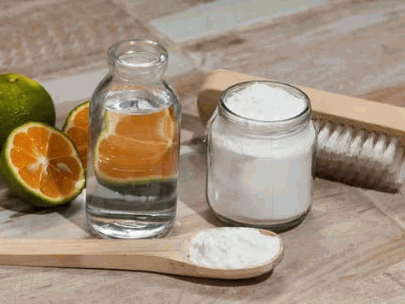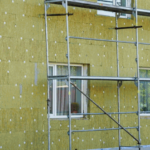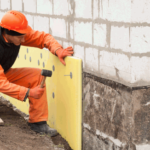If you’ve ever dealt with a clogged drain, you know how frustrating it can be.
We explore the world of drain cleaning – from why it’s important to the different methods you can use to clear your pipes.
Consider chemical drain cleaners, hydrojetting, snaking, enzymatic cleaners, or even natural solutions like baking soda and vinegar. We discuss the pros and cons of each method and cover the safety precautions you should take.
Discover the best drain cleaning method for your needs!
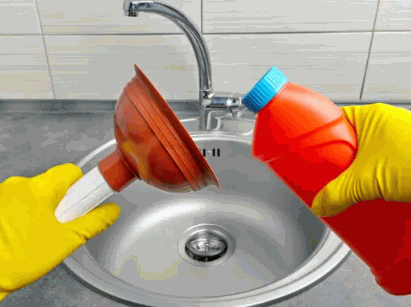
What Is Drain Cleaning?
Drain cleaning is a crucial aspect of maintenance for plumbing systems, ensuring proper functionality and preventing blockages.
Regular drain cleaning is essential to maintain the efficiency of your plumbing system. Over time, debris, grease, and other particles can accumulate in the pipes, leading to clogs and slow drainage. By scheduling routine drain cleaning services, you can proactively address these issues before they escalate into major problems. This not only helps in preventing costly repairs but also ensures the smooth flow of water throughout your home. Properly maintained drains contribute to the overall health of your plumbing system, extending its lifespan and enhancing its performance.
Gain insights: How To Clean The Drain Of A Sink

Why Is Drain Cleaning Important?
Effective drain cleaning is essential to prevent blockages, maintain hygiene, and ensure the smooth operation of plumbing systems.
Regular drain cleaning helps to prevent the build-up of debris, grease, and other substances that can lead to clogs. By keeping the pipes clear, you can avoid unpleasant odors, slow drainage, and potential blockages that could cause extensive damage. Hygiene is also a major factor as stagnant water in blocked drains can become a breeding ground for harmful bacteria. Investing in preventive drain maintenance can save you from costly repairs and replacements down the line, preserving the functionality of your plumbing system.
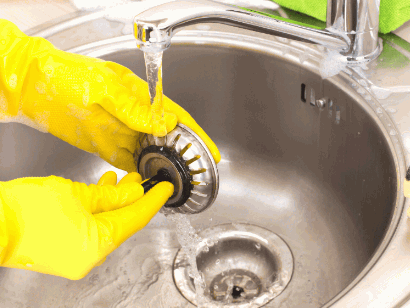
What Are The Different Methods Of Drain Cleaning?
Various methods are available for drain cleaning, catering to different levels of blockages and ensuring the maintenance of plumbing systems.
One common method is the use of drain snakes, which are flexible tools that can navigate through pipes to dislodge clogs. Chemical drain cleaners, on the other hand, use strong solutions to break down blockages caused by grease, hair, or soap scum. Hydrojetting is another effective technique that utilizes high-pressure water streams to clear out stubborn debris and buildup.
Moreover, biological drain cleaners are eco-friendly options that introduce beneficial bacteria to digest organic material within the pipes. For severe blockages or tree root intrusions, professional plumbing services may employ video inspection to pinpoint the exact location and cause of the problem.
Chemical Drain Cleaners
Chemical drain cleaners utilize acidic or alkaline properties to dissolve clogs caused by hair, organic matter, grease, or paper products.
When dealing with tougher clogs like those resulting from hair or grease buildup, alkaline drain cleaners containing sodium hydroxide are preferred.
- Alkaline cleaners work by saponifying fats and breaking down proteins, allowing them to be easily washed away.
On the other hand, acidic drain cleaners, usually containing sulfuric or hydrochloric acid, are more effective against mineral deposits and inorganic blockages. These potent chemicals can cause serious harm if not handled properly, requiring users to wear protective gear, like gloves and goggles, and ensure proper ventilation during application to prevent fumes from accumulating.
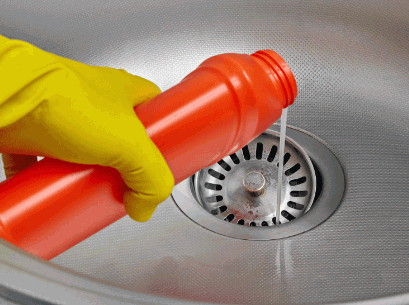
Hydro Jetting
Hydrojetting involves the use of a high-pressure water source to clear blockages in plumbing systems through the application of hydraulic force.
This powerful method can break down even the toughest clogs, such as roots, grease, and mineral build-up, with ease. The high-pressure water cuts through debris, effectively flushing out the pipes and restoring proper flow. Hydrojetting not only clears blockages but also cleans the inside of pipes, removing accumulated grime and residue that can lead to future obstructions.
Regular hydrojetting maintenance can prevent costly repairs and extend the lifespan of plumbing systems. It is a versatile solution suitable for residential, commercial, and industrial applications. The impact of hydrojetting goes beyond immediate blockage removal, promoting overall hygiene and efficiency in plumbing networks.
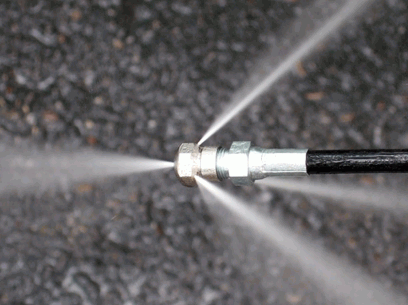
Snaking Or Plumbing Snake
Snaking, commonly done using a plumbing snake, involves inserting a flexible tool into drains to dislodge and remove blockages.
During the process, the plumbing snake is carefully guided down the drain until it reaches the clog. Once in place, the tool’s tip maneuvers through the obstruction, either breaking it up or pulling it out. The snake’s coiled design allows it to navigate twists and turns in the pipes, effectively tackling blockages in hard-to-reach areas.
Regular snaking can help maintain optimal drainage and prevent recurring clogs. It is important to note that snaking may not always be effective for severe blockages caused by issues deeper within the plumbing system.
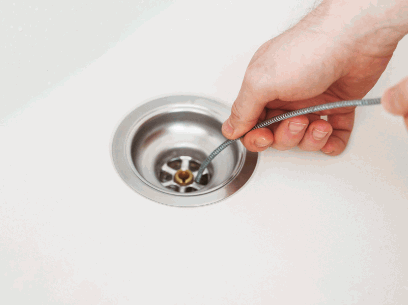
Enzymatic Drain Cleaners
Enzymatic drain cleaners utilize specialized bacteria or enzymes to break down organic matter and clear drain blockages effectively.
This innovative approach harnesses the power of natural biological processes to target grease, hair, soap scum, and other debris, transforming them into harmless byproducts like water and carbon dioxide. By introducing beneficial bacteria or enzymes into the plumbing system, these cleaners provide a sustainable solution that is gentle on pipes and the environment. They offer a safe and non-toxic alternative to harsh chemical drain cleaners, reducing the risk of corrosion and damage to plumbing fixtures. Regular use of enzymatic cleaners can help prevent clogs and maintain optimal drainage, promoting long-term plumbing health.
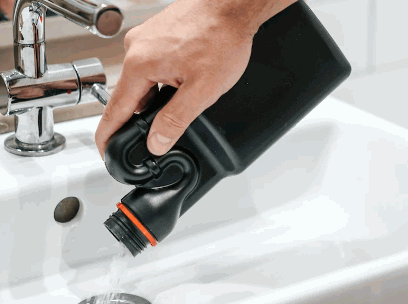
Baking Soda And Vinegar
A combination of baking soda and vinegar can serve as an effective and eco-friendly alternative for clearing minor drain clogs.
When these two pantry staples are combined, they create a powerful fizzing reaction that helps break down the clog. The process starts by pouring one cup of baking soda down the drain, followed by a cup of vinegar.
Covering the drain after pouring the mixture helps contain the fizzing action, letting it work on the blockage. After about 30 minutes, flush the drain with hot water to clear out the loosened debris.
- This method not only clears clogs effectively but also helps eliminate odors, leaving your pipes smelling fresh.
- Unlike commercial drain cleaners that contain harsh chemicals, using baking soda and vinegar is gentle on the environment and health.
What Are The Pros And Cons Of Each Drain Cleaning Method?
Each drain cleaning method offers unique advantages and drawbacks, impacting effectiveness, cost, and environmental considerations.
One common method is the use of chemical drain cleaners, which are readily available in stores and provide a quick solution to clogs. These can be harsh on pipes and the environment due to their strong chemicals. On the other hand,
- snaking
- plunger usage
- hydro-jetting
are more eco-friendly alternatives that can effectively remove blockages. Yet, they may require professional assistance, making them more costly. In contrast,
| biological drain cleaners | are environmentally friendly |
| but | may take longer to show results. |
Chemical Drain Cleaners
Chemical drain cleaners exhibit high dissolution efficiency but require strict safety measures due to their corrosive nature.
In terms of dissolving tough blockages in pipes and drains, these cleaners act quickly and effectively due to their powerful chemical formulas. It is crucial to handle them with care to prevent any accidents or injuries. One of the primary safety precautions is to wear protective gear such as gloves and goggles to shield your skin and eyes from exposure to harsh chemicals. Always read and follow the instructions on the product label carefully to ensure safe usage.
Hydro Jetting
Hydro jetting provides powerful and versatile cleaning, suitable for a wide range of blockages and plumbing system maintenance.
This method uses high-pressure streams of water to dislodge debris, grease, and mineral build-up effectively.
The force of the water is adjustable, allowing it to tackle different types of blockages without causing damage to the plumbing system.
One of the key advantages of hydrojetting is its ability to thoroughly clean pipes, removing even the most stubborn clogs and ensuring smooth water flow.
It is an environmentally friendly option, as it does not require the use of harsh chemicals that can be harmful to the ecosystem.
Snaking Or Plumbing Snake
Snaking with a plumbing snake offers a cost-effective solution with manual or mechanical actions to clear drain blockages efficiently.
Using a plumbing snake is a straightforward and budget-friendly approach to tackle clogged drains. The method involves inserting the flexible metal coil into the drain pipe to break up and remove obstructions, whether they are caused by hair, grease, or other debris. The versatility of a plumbing snake lies in its ability to navigate through twists and turns in the pipe, reaching blockages that are not accessible by other means.
Enzymatic Drain Cleaners
Enzymatic drain cleaners offer an eco-friendly and biodegradable solution for breaking down organic matter and maintaining drain cleanliness.
These cleaners harness the power of natural enzymes to effectively break down organic matter such as food particles, grease, and soap scum that can cause blockages in drains.
By using enzymes to digest and liquefy the organic waste, enzymatic drain cleaners help prevent clogs and foul odors, making them ideal for regular drain maintenance.
Plus their efficacy, one of the key benefits of enzymatic cleaners is their environmental friendliness.
Unlike harsh chemical solutions, enzymatic cleaners are safe for use in homes and have minimal impact on the environment, as they break down into harmless compounds after use.
Baking Soda And Vinegar
The combination of baking soda and vinegar provides a natural and safe method with a chemical reaction that helps clear minor drain clogs.
When these two household items are combined, they create a fizzing effect due to the reaction between the baking soda (sodium bicarbonate) and vinegar (acetic acid). This bubbling action helps dislodge debris and gunk that may be causing the blockage. The gentle abrasive properties of baking soda also aid in scrubbing away buildup without causing any harm to the pipes.
Unlike harsh chemical drain cleaners, this method is not only effective but also eco-friendly. It doesn’t introduce harmful toxins into the water system or pose any risks to your health. This natural approach is particularly advantageous for households looking for safe and sustainable cleaning solutions.
What Are The Safety Precautions When Using These Drain Cleaning Methods?
Ensuring proper safety precautions when using drain cleaning methods, especially chemical ones, is vital to prevent accidents and protect plumbing systems.
In terms of handling chemical cleaners, it’s crucial to follow the manufacturer’s instructions meticulously. Wearing appropriate safety equipment such as gloves, goggles, and a mask is imperative to shield yourself from potential harm. Mixing different chemicals can result in dangerous reactions, so it’s essential to stick to one product at a time.
Before using any chemical cleaner, ensure proper ventilation in the area to avoid inhaling toxic fumes. Always keep these products out of reach of children and pets to prevent accidents. Remember, a cautious approach to drain cleaning can go a long way in maintaining a safe and functioning plumbing system.
Chemical Drain Cleaners
When using chemical drain cleaners, wearing safety goggles and gloves is essential due to their corrosive nature and potential hazards.
These cleaners contain strong chemicals that can cause harm upon contact with the skin or eyes. Safety goggles protect the eyes from splashes, while gloves shield the skin from direct exposure.
Plus goggles and gloves, wearing a long-sleeved shirt and pants can provide extra protection. It’s crucial to keep the area well-ventilated when working with these cleaners to avoid inhaling harmful fumes.
If accidental contact occurs, immediately rinse the affected area with water for at least 15 minutes and seek medical attention. Safety gear should always be stored away from children and pets to prevent accidental exposure.
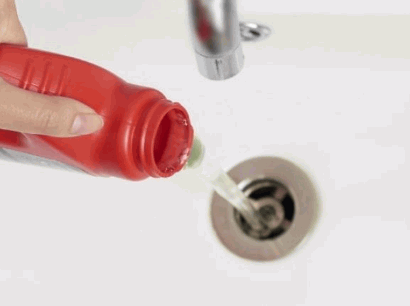
Hydro Jetting
Hydro jetting should be performed by trained professionals equipped with protective gear to handle the high-pressure water efficiently and safely.
Water pressure during hydro jetting can exceed 4000 PSI, posing risks such as skin penetration and injury if not handled properly.
Professionals must adhere to strict safety protocols, including wearing protective gear like gloves, goggles, and coveralls to shield against potential hazards.
Specialized equipment such as high-pressure nozzles and hoses are essential to ensure precise and effective cleaning of drain lines and sewer systems.
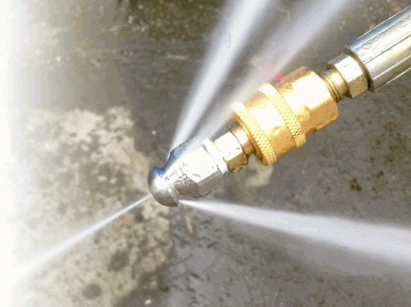
Snaking Or Plumbing Snake
When snaking with a plumbing snake, wearing eye protection and following proper manual operation guidelines are vital safety precautions to prevent injury.
Eye protection plays a critical role in shielding your eyes from debris or splashes during the snaking process. Manual operation techniques should be executed carefully to avoid any accidental injuries or mishaps. It is essential to secure the snake’s handle properly with both hands to ensure control and stability while feeding it into the drain.
Being mindful of your surroundings and maintaining a steady pace helps prevent the snake from getting tangled or causing damage. Remember to wear appropriate gloves to protect your hands and always power off the equipment before attempting any maintenance or adjustments.
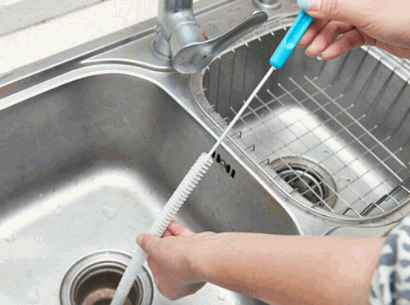
Enzymatic Drain Cleaners
When handling enzymatic drain cleaners, avoiding direct skin contact and reviewing safety data sheets are essential due to their eco-friendly yet potent nature.
Enzymatic drain cleaners are formulated with environmentally safe ingredients that work efficiently to break down organic matter and unclog drains without harsh chemicals. These cleaners offer a greener alternative for maintaining drainage systems while minimizing the impact on the environment. It is important to pay attention to the hazard communication provided on the product labels and safety data sheets to understand the potential risks and necessary precautions.
When using enzymatic drain cleaners, wearing protective gear such as gloves and safety goggles is crucial to prevent any accidental skin exposure. By following the recommended protective measures, you can ensure both effective cleaning results and personal safety. Proper disposal methods should be followed to further support environmental sustainability and reduce any negative effects on ecosystems.
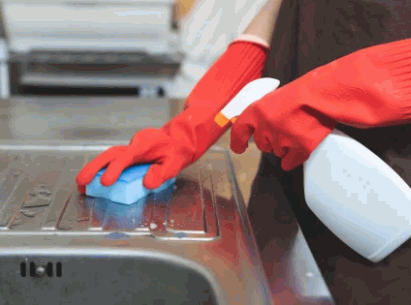
Baking Soda And Vinegar
Utilizing baking soda and vinegar for drain cleaning offers a non-toxic solution with a chemical reaction, requiring simple yet effective safety measures.
When combined, baking soda and vinegar create a fizzy reaction that helps break down blockages and grime in drains. This natural method is not only effective but also environmentally friendly, as it doesn’t involve harmful chemicals that can harm water sources or ecosystems. Baking soda acts as a mild abrasive, while vinegar’s acidic properties help dissolve buildup within the drains, making them clean and odor-free.
It’s crucial to follow some precautions when using this dynamic duo. Remember to pour the vinegar slowly over the baking soda to avoid splashes, and never mix them in a closed container as the reaction can cause pressure build-up. Ensure proper ventilation during the cleaning process to prevent inhalation of any fumes.
